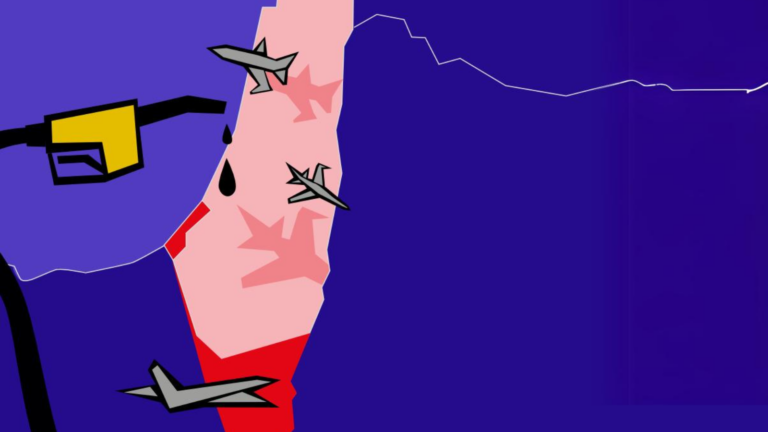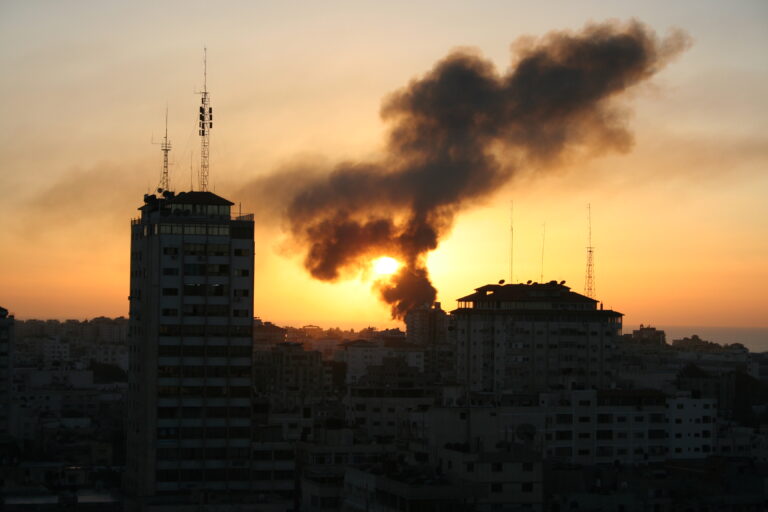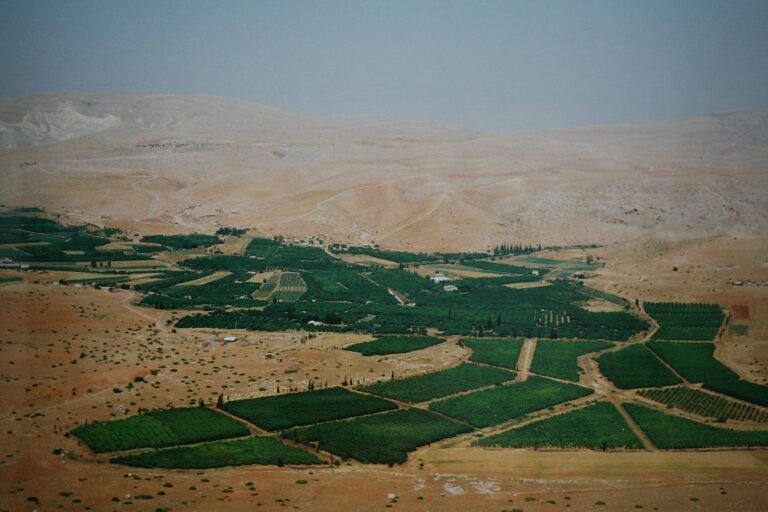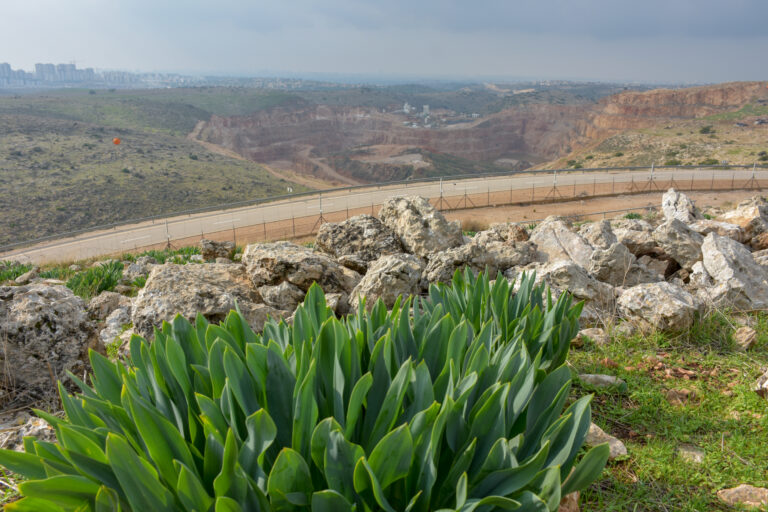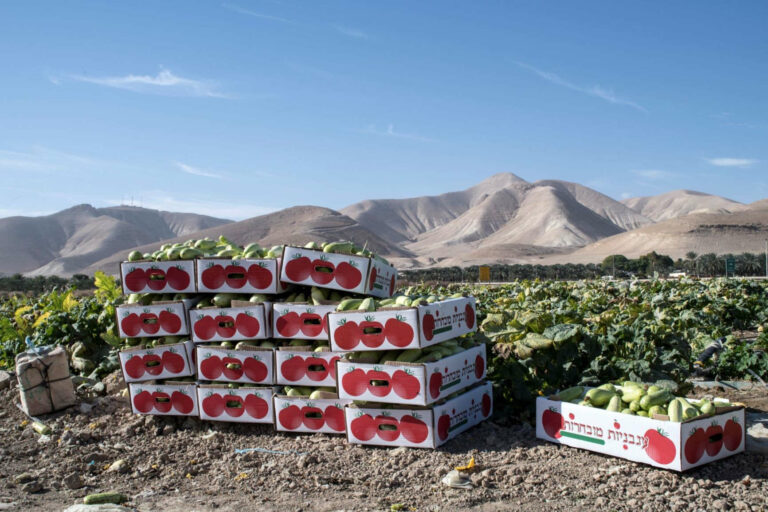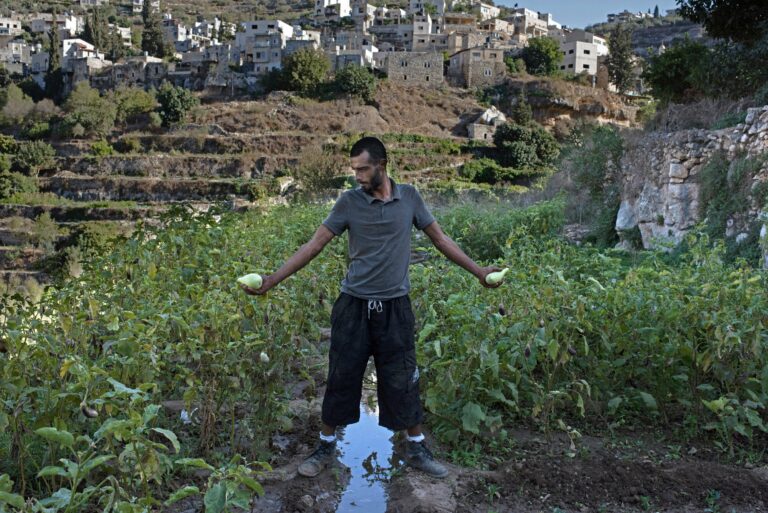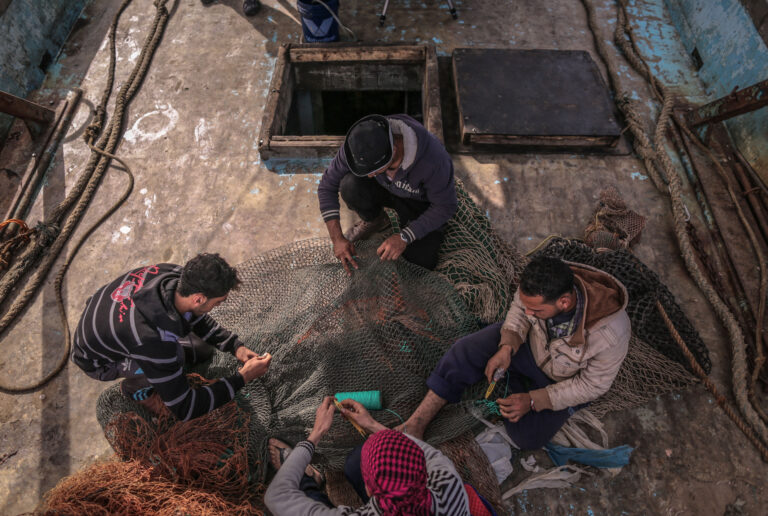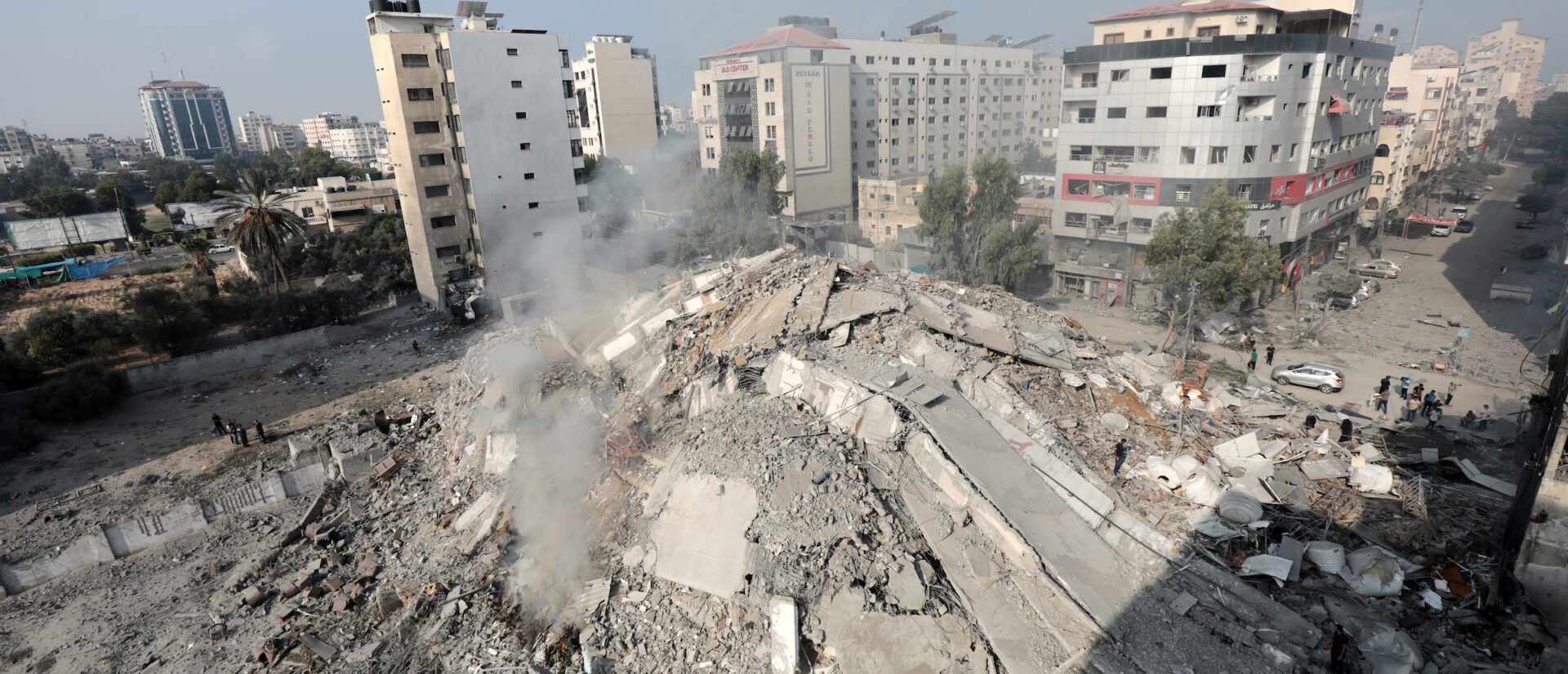
Business as usual in Palestine?
Part and parcel of an apartheid system
In the context of any armed conflict, companies and investors are required to apply heightened human rights due diligence(opens in new window) to avoid adverse impacts from their operations, supply chains, and investments. This due diligence should be proportionate to the scale and severity of risks their operations and business interests pose to human rights, ensuring they neither contribute to nor profit from the conflict. Corporate actors (both companies and their senior leadership) may face legal liability if they become involved in crimes under international law, including genocide, war crimes, and crimes against humanity.
However, in Palestine, over decades of brutal occupation, annexation, and forced displacement, corporations have become part and parcel of a system that oppresses Palestinians and unlawfully extracts their natural resources. Amnesty International(opens in new window) , Human Rights Watch(opens in new window) , and SOMO’s Palestinian partner organisation Al-Haq(opens in new window) , have correctly labelled this as a system of apartheid, which is also a crime under international law. This crime is exacerbated by multinational corporations, whose involvement in human rights abuses has been well documented.
The United Nations has published a database(opens in new window) listing businesses operating in illegal Israeli settlements in violation of international law. Regrettably, the countries where these businesses are based, including the United States, United Kingdom, the Netherlands, Luxembourg, Spain, and France, have yet to enact effective measures to hold their corporations accountable.
Business as usual, even after 7 October
Since the 7 October 2023 Hamas-led attack on Israel, the 2.3 million Palestinians in the Gaza Strip have faced relentless military attacks, forced displacement, and a siege, leading to thirst, starvation, disease, and widespread death and suffering. On 26 January 2024, following a case brought by South Africa against Israel, the International Court Justice determined(opens in new window) that there is a plausible risk of Israel committing genocide against the Palestinians in Gaza. The current siege imposed on Gaza comes after 16 years of an unlawful blockade(opens in new window) imposed on the territory. The deliberate communication shutdowns and denial of vital supplies like water(opens in new window) , food, fuel(opens in new window) , and electricity are acts that amount to the collective punishment(opens in new window) of a civilian population, constituting a war crime. Corporate complicity in acts of war crimes and potential genocide must be promptly addressed. Questions have been raised about the potential complicity of certain sectors, including the arms industry(opens in new window) and the tech sector(opens in new window) , in atrocity crimes in Gaza. In March 2024, the UN Human Rights Council adopted a resolution(opens in new window) calling upon states to impose a three-way arms embargo, ceasing the “sale, transfer and diversion of arms, munitions and other military equipment to Israel” and to refrain from “the export, sale or transfer of surveillance goods and technologies and less-lethal weapons, including ‘dual-use’ items” when there are reasonable grounds to suspect that they might be used in violations or abuses.”
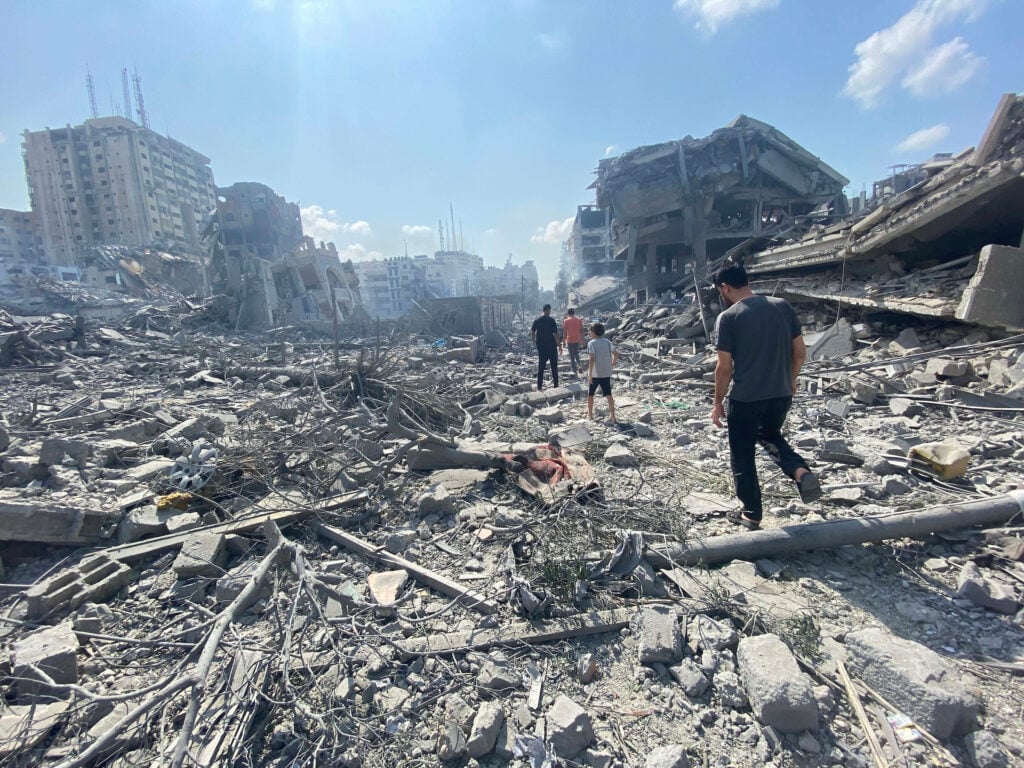
Since the beginning of 2023, and especially after 7 October, Israeli forces and settlers have also escalated their attacks against Palestinians and their properties in the West Bank, including East Jerusalem. These actions have resulted in death, injury, and forced displacement(opens in new window) of entire communities. Additionally, there has been a significant increase(opens in new window) in arbitrary arrests and torture of Palestinians in detention. Over the past decades, multinationals have been challenged for their involvement in the detention industry, settlement construction, and home demolitions in the West Bank.
SOMO’s investigations
In collaboration with partner organisations, SOMO’s research exposes the corporate impunity that characterises the business-as-usual approach of many multinationals operating in occupied Palestine. Through activities like tourism and the unlawful exploitation of Palestinian natural resources such as stone, gas, and agricultural products, these corporations actively support Israel’s illegal settlement economy.
A list of posts
-
2024Dec 17
-
Nov 22Dutch State accused of failing to prevent genocidePosted in category:Case
 Lydia de LeeuwPublished on:
Lydia de LeeuwPublished on: -
Jun 05Legal expert opinion: Obligations of tird states and corporations to prevent and punish genocide in GazaupdateSOMO and Al-haq comissioned an expert legal analysis to inform civil society advocacy, educate companies on their responsibilities, and guide states in the unprecedented situation where the ICJ has warned of a “real and imminent risk” of genocide while the crimes are still ongoing.Published on:
-
May 28
-
May 23Booking.com accused of laundering profits from Israeli war crimes in PalestinePosted in category:Case
 Lydia de LeeuwPublished on:
Lydia de LeeuwPublished on: -
Apr 16
-
2023Dec 18Trade with Israeli settlements: Dutch ministry ignores internal warningsPosted in category:News
 Lydia de LeeuwPublished on:
Lydia de LeeuwPublished on: -
2022Oct 31
-
2021Mar 04
-
2020Feb 04The unlawful exploitation of Palestinian stonePosted in category:Publication
 Lydia de LeeuwPublished on:
Lydia de LeeuwPublished on: -
2019Feb 04The long road to freedom of information about imports from Israel and PalestinePosted in category:Long read
 Sanne van der WalPublished on:
Sanne van der WalPublished on: -
2018Jun 21What do we (not) know about the products sold by the largest Dutch supermarkets?Posted in category:Publication
 Pauline OvereemPublished on:
Pauline OvereemPublished on: -
2017Dec 22
-
May 10
-
May 10Beneath troubled waters: Palestinian access to the sea denied by IsraelPosted in category:Long read
 Lydia de LeeuwPublished on:
Lydia de LeeuwPublished on:
Corporate accountability now! And how?
- Companies operating in the context of an armed conflict are subject to scrutiny under international humanitarian law and international criminal law, as well as normative standards such as the UN Guiding Principles on Business and Human Rights and OECD Guidelines for Multinational Enterprises. They must be aware of the impact of their activities on conflict dynamics and avoid unintentional support of conflict, including through logistical or financial means. This obligation also extends(opens in new window) to preventing actions and refraining from activities that could contribute to breaches of international criminal law(opens in new window) , such as forced displacement and acquiring assets through pillage(opens in new window) . The OECD Guidelines for Multinational Corporations(opens in new window) make clear that companies should consider responsibly disengaging from business relationships tied to conflicts. This particularly applies when they lack leverage to prevent or mitigate adverse impacts. The guidelines also stress the importance of considering credible assessments of potential adverse human rights impacts of its disengagement and addressing those adverse impacts accordingly.
- Third states must take effective measures to uphold international law, prevent genocide in Gaza, and effectively regulate corporations domiciled in their jurisdiction for their involvement in potential violations across Palestine. The role of states in enforcing accountability is not just crucial but a legal imperative. The UNGPs explicitly emphasise(opens in new window) states’ duty to implement mechanisms that address business responsibilities in conflict-affected areas. Hence, home states – the state in which a corporation is based – must play a role in holding corporations accountable for upholding human rights, especially since Israel is unwilling and Palestine is unable to do so. To uphold international law vis-a-vis companies domiciled elsewhere, effective measures could include prohibiting trade, financial transactions, or other forms of economic engagement with corporations and entities that are complicit in human rights abuses.
- Civil society has a critical role to play towards holding corporations to account. For example, labour unions and allies have coordinated direct actions(opens in new window) , obstructing the supply of weapons to Israel amidst its military campaign against the civilian population in Gaza. SOMO collaborates with local and international organisations to hold corporate actors accountable for their role in international crimes perpetrated in Palestine. Through our civil society helpdesk, The Counter, we assist organisations promoting corporate accountability in Palestine and globally.
Do you need more information?
-

Lydia de Leeuw
Researcher -

Aintzane Márquez
Researcher Strategic Litigation
Related news
-
 The hidden human costs linked to global supply chains in ChinaPosted in category:News
The hidden human costs linked to global supply chains in ChinaPosted in category:News Joshua RosenzweigPublished on:
Joshua RosenzweigPublished on: -
Powering injustice Published on:
 Lydia de LeeuwPosted in category:Publication
Lydia de LeeuwPosted in category:Publication Lydia de Leeuw
Lydia de Leeuw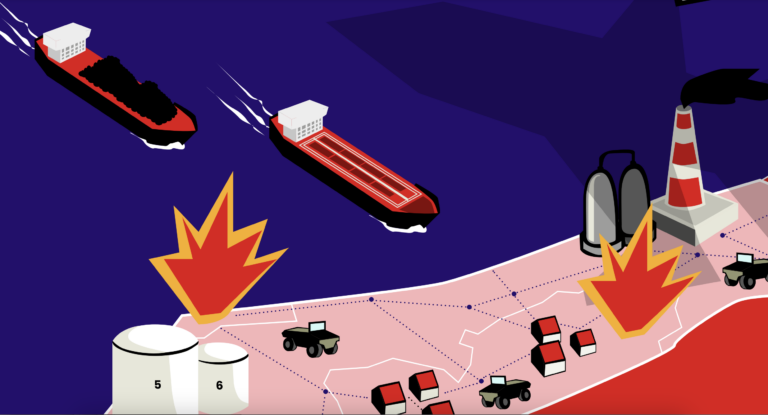
-
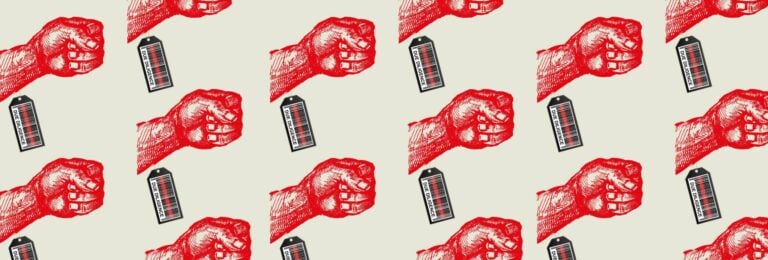 Major brands sourcing from China lack public policies on responsible exitPosted in category:News
Major brands sourcing from China lack public policies on responsible exitPosted in category:News Joshua RosenzweigPublished on:
Joshua RosenzweigPublished on:



